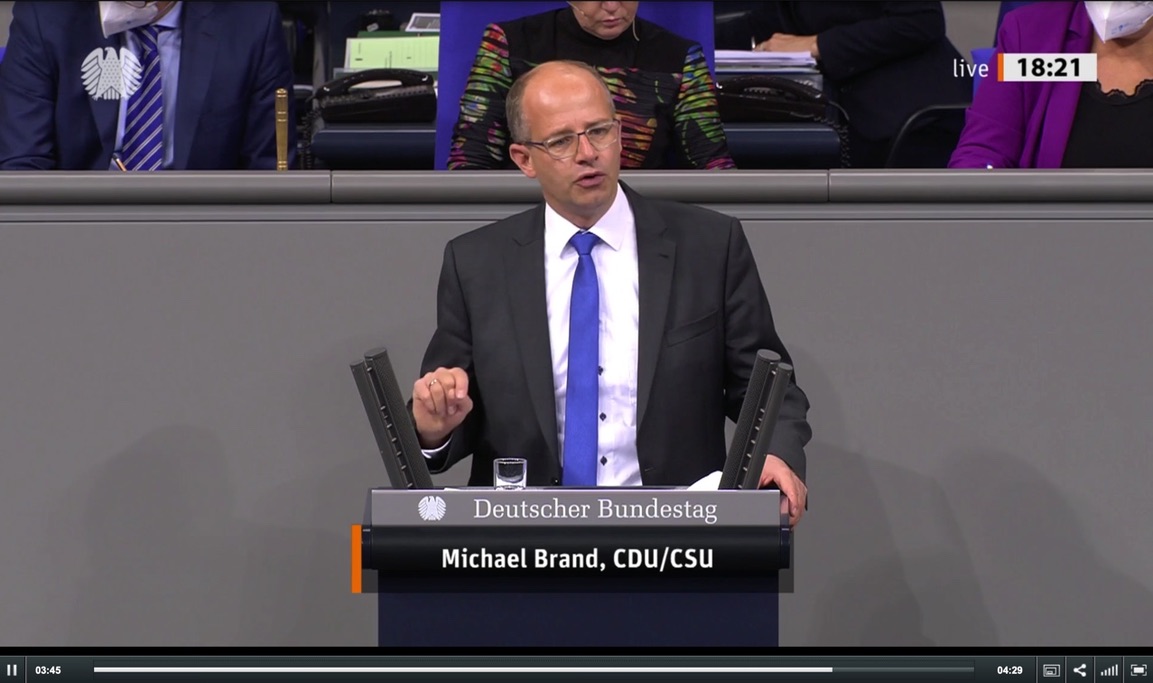Source: iran.bahai.de

On 8 October 2020, the German Parliament (Bundestag) debated motions by the Greens entitled “Iran – Condemn human rights violations and consistently demand obligations under international law” (19/22561) and the FDP parliamentary group entitled “Increase Germany’s commitment to human rights in Iran – Strongly condemn and punish human rights violations by the Iranian regime” (19/23117). Both motions were referred to the Committee on Human Rights and Humanitarian Aid for consideration. Like the Greens’ motion, the FDP faction’s motion emphasized the increasing oppression of Bahá’ís:
“Since the Islamic Revolution in 1979, freedom of religion and belief has been systematically violated. The entire public and political system is based on the interpretation of Shiite Islam by the so-called religious leader and his Council of Guardians. Thus important political offices are denied to followers of these religions. The Baha’is, Iran’s largest non-Muslim religious community, which has been subjected to systematic persecution and oppression by the regime for decades, should be mentioned here as a representative of other religious communities that are suppressed in the Islamic Republic of Iran. As a matter of principle, followers of other faiths are not subject to any protection; public defamation, violent attacks, arbitrary imprisonment, torture, persecution, denial of access to education, the labor market, etc. are part of everyday repression. Sometimes even the peaceful practice of another religion in Iran can lead to a death sentence, and the same applies to atheists accused of apostasy.”
Some of the deputies also addressed the worrying situation of Bahá’ís during the debate. Omid Nouripour, foreign policy spokesman for the Green faction emphasized this:
“When children are executed, women who refuse to wear headscarves are tortured, homosexuals are persecuted, conservationists are arrested, Kurds are banned from teaching their own language, Balochians are denied humanitarian aid after natural disasters, and Baha’is are systematically denied access to education, only injustice wins. In injustice, the judicial system becomes an instrument of oppression and arbitrariness.”
The former chairman of the Committee for Human Rights and Humanitarian Aid and human rights spokesperson of the CDU/CSU parliamentary group, Michael Brand mentioned:
“Even within Iran the mullahs pursue every thought of freedom, human rights and human dignity. They brutally persecute everything and everyone who becomes dangerous to their corrupt regime. They enrich themselves by billions, while the population – during the pan-demic all the more so – struggles for bare survival. The persecution is directed against Muslims, against Christians, against Baha’is, Kurds and others. It is directed against courageous, peaceful activists for democracy and human rights. The regime of the mullahs does not rely on the old civilization of the country. It relies on primitiveness, brutal persecution, imprisonment, torture and murder of innocent civilians. We condemn this break with civilization, these crimes against human rights”.
Frank Heinrich, chairman of the committee for human rights and humanitarian aid for the CDU/CSU faction concluded:
“The way in which Christians, Baha’is and believers of other religions live their faith and stand up for it despite discrimination and persecution is inspiring. That is why I think it is good that we name them here, that you name them in the motion, that they are named and known as role models, that we get to hear their inspiring stories here. I would like to focus here on the values they are fighting for – exemplary in Iran – because they are also our values.”
Leave a Reply